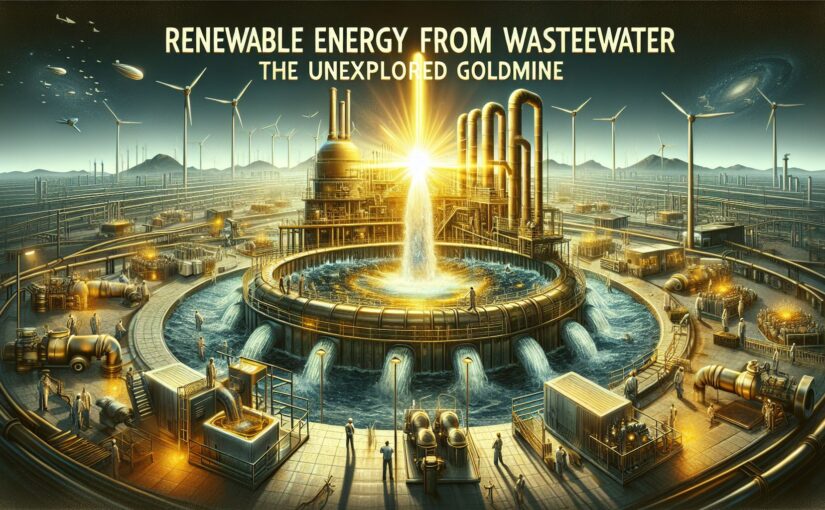The quest for cleaner, renewable forms of energy has led scientists and researchers down many roads. An unassuming and often underestimated source, however, lies in something we produce every day – wastewater. Wastewater is no longer just a waste product, but an untapped resource that offers us a way toward sustainable, renewable energy, reducing our reliance on fossil fuels and mitigating the global energy crisis.
Wastewater from residential, agricultural, and industrial sources typically contains high quantities of organic material that bacteria can break down into simpler compounds. This process is used not just for wastewater treatment, but also to create bioenergy. The use of microbial fuel cells (MFCs) is an innovative way to harness this potential energy source.
How it Works
MFCs are bio-electrochemical systems that use bacteria to convert organic waste material found in wastewater into electricity. This is achieved by the bacteria consuming the organic matter and producing electrons, which are then funneled into the cell’s electrode. A flow of electrons from the anode to the cathode creates a current – electricity!
Benefits and Potential
In addition to being a renewable source of energy, MFCs provide a double boon – waste treatment and power generation. This technology could help not only in promoting sustainable practices, but also in solving waste management issues in densely populated urban areas with high wastewater production rates.
With advancements in technology and greater understanding of microbial processes, the efficiency of these systems has been improving. Scientists are experimenting with different types of bacteria and electrode materials, and exploring methods to scale up MFCs’ usability for commercial applications.
Challenges and Future Steps
Although the potential benefits of MFCs are immense, challenges do exist. These include the cost of the initial setup, establishing a consistent quality of wastewater supply, enhancing power efficiency, and scaling up the technology.
Despite these challenges, the concept holds substantial promise and is attracting interest from environmental scientists, water treatment specialists, and renewable energy experts, among others. With continuous research and development, we can hope for a future where renewable energy from wastewater becomes a mainstream solution.
Conclusion
Renewable energy from wastewater is still a relatively unexplored field that offers significant potential. As we continue to grapple with the increasing challenges of energy consumption, carbon emissions, and waste disposal, environmentally-friendly and sustainable solutions like these offer a glimmer of hope. As the adage goes, “one person’s trash is another person’s treasure”. In the world of renewable energy, wastewater might just be the treasure we’re overlooking.
Sources:
